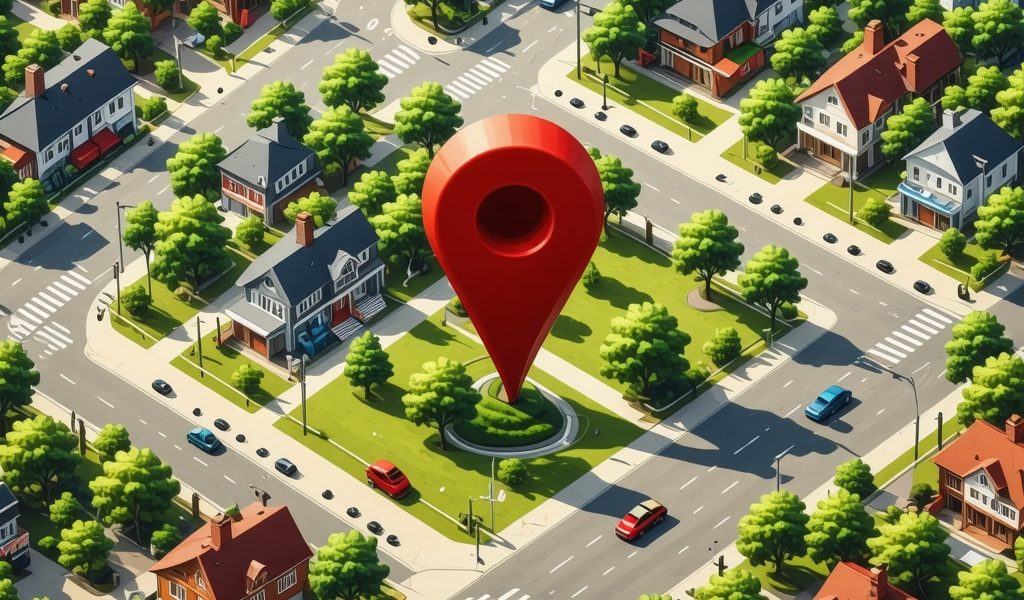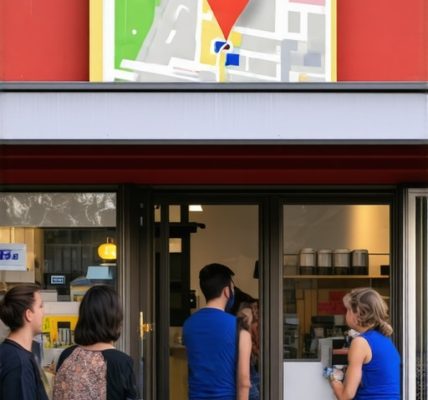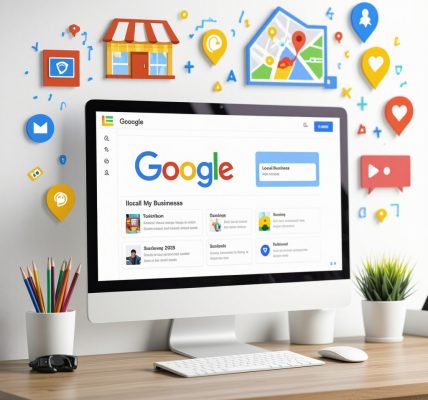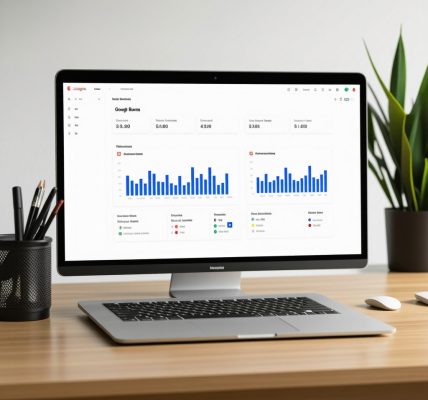Unlocking the Power of Hyperlocal SEO: Why Your Neighborhood Matters Most
In the ever-evolving landscape of digital marketing, hyperlocal SEO emerges as a potent strategy that transcends traditional local SEO by zeroing in on customers within a very specific geographic radius—your immediate neighborhood. This approach is especially crucial for small businesses aiming to attract foot traffic and build community trust. Unlike broad local SEO tactics, hyperlocal SEO leverages granular targeting that aligns perfectly with how consumers search for services near them, often using “near me” queries that Google increasingly prioritizes for personalized results.
Crafting Laser-Focused Content That Resonates Locally
One of the foundational pillars of hyperlocal SEO lies in creating content that speaks directly to the needs and interests of your neighborhood audience. Incorporate local landmarks, events, and community stories to build authentic connections. For example, a neighborhood bakery might blog about local farmers’ markets or neighborhood festivals, subtly weaving in keywords like “bakery in [neighborhood]” or “fresh bread near me.” This strategy not only enhances relevance but also signals to search engines your site’s strong ties to the community, boosting your Google Business Profile visibility.
How Can Businesses Optimize Google Business Listings for Hyperlocal Success?
A critical piece in hyperlocal SEO is optimizing your Google Business Profile (formerly Google My Business). Ensure your listing is complete with accurate hours, up-to-date photos, and localized descriptions that reflect your neighborhood focus. Utilize Google Posts to share timely updates or local offers, and actively manage reviews by encouraging satisfied customers to leave detailed feedback. For expert tactics on optimizing your Google Business listing effectively, explore this comprehensive guide. Such meticulous optimization enhances your chances of ranking in Google’s Local 3-Pack, which is pivotal for capturing hyperlocal traffic.
Harnessing Local Citations and Link Building to Cement Neighborhood Authority
Beyond on-site content and Google profiles, building a web of local citations across trusted directories and community platforms fortifies your business’s neighborhood presence. Consistency in your business Name, Address, and Phone number (NAP) across these citations is essential to avoid confusing search engines. Additionally, local backlinks from community blogs, chambers of commerce, or local news outlets not only drive referral traffic but also signal authority and trustworthiness to search engines, a nuanced tactic often overlooked in hyperlocal strategies.
Leveraging User Experience and Mobile Optimization for Instant Local Engagement
Given that many hyperlocal searches occur on mobile devices, optimizing your website for mobile speed and usability is non-negotiable. A seamless user experience with quick load times, intuitive navigation, and clear calls-to-action increases the likelihood that neighborhood visitors will convert into customers. Moreover, integrating features like click-to-call buttons and embedded maps enhances immediacy and convenience, critical in capturing the intent-driven local searcher.
To further deepen your understanding of local SEO’s impact on small businesses, see our detailed resource on understanding local SEO for small businesses.
Ready to elevate your hyperlocal SEO game? Share your neighborhood marketing experiences or questions below to join our community of local business experts!
For authoritative insights on local search behavior and the rising importance of “near me” searches, the Moz research on near me searches offers invaluable data and trends shaping hyperlocal SEO.
Integrating Community Engagement with Digital Presence for Authentic Hyperlocal Impact
To truly dominate hyperlocal search results, businesses must blend offline community engagement with their digital strategies. Participating in or sponsoring local events, collaborating with neighborhood organizations, and sharing real-time updates about community involvement on your Google Business Profile can humanize your brand and foster loyalty. This authentic interaction not only encourages more frequent local searches but also generates organic reviews and social signals that search engines value highly.
Data-Driven Approaches: Leveraging Analytics to Refine Neighborhood Targeting
Utilizing analytics tools like Google Analytics and Google Business Insights empowers businesses to dissect which hyperlocal keywords are driving traffic and conversions. By analyzing user behavior patterns, peak search times, and geographic data, marketers can fine-tune their content and Google Business updates to align perfectly with neighborhood demand. For example, if evening searches spike around a particular local landmark, tailoring posts or offers for that timeframe can enhance engagement and foot traffic.
How Does Hyperlocal SEO Intersect with Voice Search and Smart Devices?
With the rise of voice-activated assistants and smart devices, hyperlocal SEO must evolve to encompass conversational and natural language queries. People often use voice search for quick, location-based requests like “Where’s the best coffee near me?” or “Which hardware store is open now in [neighborhood]?” Optimizing for these queries involves incorporating long-tail keywords and question-based content that mirrors everyday speech patterns. Structured data markup and FAQ sections on your website can also improve your chances of being featured in voice search results, further amplifying your neighborhood reach.
Industry experts at Search Engine Journal highlight that voice search optimization is becoming indispensable for local SEO success, particularly as smart device adoption accelerates globally (Search Engine Journal Voice Search SEO Guide).
Maintaining Consistency Amid Dynamic Local Changes
Neighborhoods are dynamic, with ongoing changes like new competitors, shifting customer preferences, and evolving Google algorithms. A robust hyperlocal SEO strategy requires continuous monitoring and updating. Regularly auditing your Google Business Profile, refreshing local content, and updating citations ensure your business remains relevant and authoritative. Tools such as GMB SEO audits help identify gaps and opportunities, enabling proactive optimization that keeps you ahead in local rankings.
Incorporating these advanced strategies elevates your hyperlocal SEO from basic presence to neighborhood dominance, making your business the go-to choice for local customers.
Have you experimented with voice search optimization or community engagement tactics in your hyperlocal SEO efforts? Share your insights or questions below to enrich our expert community discussion!
Mastering Hyperlocal Schema Markup: Elevate Your Neighborhood Search Visibility
One of the most sophisticated yet underutilized tactics in hyperlocal SEO is the strategic implementation of hyperlocal schema markup. Schema markup, a form of structured data, helps search engines understand your business context beyond simple keywords. By embedding detailed local business schema that includes exact neighborhood identifiers, service areas, and even event participation within your HTML, you provide search engines with granular data that can trigger rich snippets and enhance local search prominence.
For example, using LocalBusiness schema with properties like areaServed set to your specific neighborhood name can significantly boost your chances of appearing in hyperlocal queries. Moreover, pairing schema markup with Event schema for community activities your business sponsors or hosts amplifies your local relevance and can be reflected in Google’s event carousels.
Decoding Hyperlocal Competitor Analysis: Beyond the Surface Metrics
Hyperlocal SEO success is not only about your own optimization but also about understanding and leveraging competitive nuances within your immediate vicinity. Advanced competitor analysis requires dissecting local backlink profiles, Google Business Profile engagement metrics, and even sentiment analysis of customer reviews in your neighborhood.
Tools like SEMrush and BrightLocal offer granular insights into which local directories and community platforms your competitors dominate, what keywords they target, and how their local content resonates. This intelligence enables you to identify content gaps, backlink opportunities, and hyperlocal keywords your competitors might be overlooking.
What Are the Most Effective Metrics for Measuring Hyperlocal SEO ROI?
Measuring the return on investment (ROI) for hyperlocal SEO demands a nuanced approach beyond traditional web analytics. While traffic and rankings matter, key performance indicators should include metrics like foot traffic attribution—how many local searches translate into in-store visits, conversion rates from hyperlocal landing pages, and engagement rates on neighborhood-specific Google Posts and social media channels.
Utilizing tools such as Google My Business Insights provides data on how customers find your listing, the queries used, and actions taken such as calls or direction requests. Combining this with in-store analytics or POS data can provide a holistic view of how your hyperlocal SEO efforts affect real-world sales. For an in-depth framework on tracking local SEO ROI, consult the expert analysis by Search Engine Journal.
Hyperlocal SEO and the Rise of Augmented Reality (AR) in Neighborhood Marketing
Looking forward, integrating augmented reality into hyperlocal SEO strategies offers an innovative frontier for engaging customers on a hyper-personalized level. AR-powered apps can overlay digital information about your business on users’ physical surroundings, making local searches an immersive experience.
Businesses can develop AR-enabled virtual tours of their storefronts, interactive neighborhood guides, or even AR promotions accessible through mobile devices that trigger when users are physically close. This fusion of AR technology with hyperlocal SEO not only enhances user experience but also generates unique, location-specific content and backlinks that boost your local search authority.
Exploring how to incorporate AR into your hyperlocal marketing strategy can position your business as a neighborhood innovator and a local favorite.
Engage with us by sharing your thoughts or questions on leveraging advanced schema markup, competitor analysis, or emerging AR technologies in hyperlocal SEO below. Together, let’s pioneer neighborhood digital dominance!
Mastering the Nuances of Hyperlocal Schema Markup for Enhanced SERP Features
Expanding upon the foundational use of schema markup, hyperlocal SEO practitioners can harness granular structured data to delineate neighborhood boundaries, event specifics, and service nuances. Employing properties such as geo coordinates, hasMap, and openingHoursSpecification in tandem with LocalBusiness schema intricately informs search engines about your precise locality and operational context. This level of detail not only facilitates eligibility for rich snippets but also optimizes your presence for emerging local search interfaces like Google Maps enhanced cards and knowledge panels.
Decoding Competitor Backlink Profiles: A Hyperlocal Advantage Strategy
Beyond mere keyword competition, an expert hyperlocal SEO approach entails dissecting the backlink ecosystems of neighborhood rivals. Analyzing the quality, relevance, and diversity of inbound links via specialized SEO tools unveils opportunities to acquire authoritative local citations and partnerships. For instance, pinpointing community blogs or local sponsorships that competitors leverage can guide your outreach for reciprocal linking or guest posting, effectively augmenting your neighborhood domain authority.
What Are the Most Effective Metrics for Measuring Hyperlocal SEO ROI?
Measuring ROI in hyperlocal SEO transcends conventional metrics by integrating offline conversion tracking and multi-channel attribution. Key indicators include foot traffic analytics synchronized with local search campaigns, conversion rates from geo-targeted landing pages, and engagement metrics on neighborhood-centric Google Posts and social media platforms. Leveraging Google Business Profile Insights alongside POS data enables a nuanced understanding of how digital visibility translates into tangible local sales. For a comprehensive framework on these advanced measurement techniques, refer to the Search Engine Journal’s expert analysis.
Augmented Reality: The Next Frontier in Hyperlocal Consumer Engagement
Augmented reality (AR) integration heralds a paradigm shift in neighborhood marketing by merging physical and digital experiences. Forward-thinking businesses can craft AR-powered virtual storefront tours, interactive product demonstrations, and localized promotional overlays accessible via smartphones. This immersive technology not only captivates the tech-savvy local audience but also generates unique user interactions and location-specific digital footprints that favorably influence search engine algorithms.
Ready to pioneer these cutting-edge hyperlocal SEO tactics? Share your experiences or questions below and join a community of experts driving neighborhood digital innovation!

Frequently Asked Questions (FAQ)
What exactly is hyperlocal SEO and how does it differ from general local SEO?
Hyperlocal SEO targets customers within a very narrow geographic area—often a specific neighborhood or block—whereas general local SEO typically covers broader regions like cities or metropolitan areas. Hyperlocal SEO focuses on ultra-specific keywords, local landmarks, and community engagement to capture highly intent-driven, nearby customers, making it essential for businesses that rely on immediate foot traffic and neighborhood loyalty.
How can small businesses effectively optimize their Google Business Profile for hyperlocal SEO?
Small businesses should ensure their Google Business Profile is fully completed with accurate and updated information, including localized descriptions, business hours, photos, and posts about neighborhood events or offers. Actively managing and responding to reviews with hyperlocal context, and using features like Google Posts to share timely community updates, can significantly enhance visibility in the Local 3-Pack and attract nearby customers.
Why are local citations and backlinks important for hyperlocal SEO?
Consistent local citations across trusted directories and community platforms establish your business’s credibility and ensure search engines correctly associate your business with a specific neighborhood. Additionally, backlinks from authoritative neighborhood sources like local blogs or chambers of commerce signal trustworthiness and domain authority, which improves your rankings for hyperlocal queries.
How does schema markup improve hyperlocal SEO performance?
Schema markup provides structured data that helps search engines understand your business context in greater detail, such as exact neighborhood area served, business hours, and associated local events. Implementing detailed LocalBusiness and Event schemas can trigger rich snippets in search results, increasing click-through rates and improving your visibility in hyperlocal and voice search results.
What role does voice search play in hyperlocal SEO, and how can businesses optimize for it?
Voice search is increasingly used for quick, conversational, location-specific queries like “Where’s the best coffee near me?” Optimizing for voice search involves incorporating natural language, question-based content, and long-tail keywords that mirror how people speak. Structured data and FAQ sections also improve your chances of being featured in voice search results, making your business more accessible to mobile and smart device users.
How can augmented reality (AR) be integrated into hyperlocal marketing strategies?
AR allows businesses to create immersive, location-specific experiences such as virtual storefront tours, interactive neighborhood guides, or promotional overlays that activate when users are nearby. This innovative approach not only enhances user engagement but also generates unique digital content and backlinks, boosting local search authority and positioning your business as a neighborhood innovator.
What metrics are most effective in measuring hyperlocal SEO ROI?
Beyond traditional web traffic and rankings, effective metrics include foot traffic attribution, conversion rates from neighborhood-targeted landing pages, engagement on Google Business Posts, and in-store sales data linked to local search activities. Combining Google Business Insights with point-of-sale analytics provides a comprehensive view of how your hyperlocal SEO efforts translate into tangible business results.
How often should businesses update their hyperlocal SEO strategies?
Given the dynamic nature of neighborhoods and evolving search algorithms, businesses should regularly audit their Google Business Profile, refresh localized content, and update citations to maintain relevance and authority. Continuous monitoring and proactive optimization ensure sustained prominence in hyperlocal search results amidst competitive and environmental changes.
What tools can help analyze hyperlocal competitors effectively?
Tools like SEMrush and BrightLocal provide granular insights into competitors’ local backlink profiles, citation footprints, and keyword strategies. These platforms help identify content gaps, backlink opportunities, and community engagement tactics that can be leveraged to outperform rivals in specific neighborhoods.
How does mobile optimization influence hyperlocal SEO success?
Since many hyperlocal searches occur on mobile devices, optimizing your website for fast load times, intuitive navigation, and mobile-friendly features like click-to-call and embedded maps is critical. A seamless mobile experience increases user engagement and conversion likelihood, capturing the intent-driven local searcher effectively.
Trusted External Sources
- Moz – Near Me Searches Research: This research provides in-depth data and trends on the rise of “near me” queries, revealing user behavior insights that are foundational for shaping hyperlocal SEO strategies.
- Search Engine Journal – Voice Search SEO Guide: Offers expert advice and practical techniques for optimizing content and structured data to capture voice search traffic, an essential component of modern hyperlocal SEO.
- BrightLocal – Local SEO and Citation Analysis: A leading platform for local SEO analytics, citation tracking, and competitor benchmarking, invaluable for refining neighborhood-specific digital marketing efforts.
- SEMrush – Competitor and Backlink Analysis Tools: Provides comprehensive SEO tools to analyze local competitors, uncover backlink opportunities, and identify keyword gaps within hyperlocal contexts.
- Google Business Profile Help Center: Official guidelines and best practices for managing and optimizing Google Business Profiles to maximize local and hyperlocal search visibility.
Conclusion
Hyperlocal SEO represents a sophisticated evolution of local digital marketing, enabling businesses to dominate their immediate neighborhoods through targeted, community-centered strategies. By integrating precise content that resonates with local audiences, optimizing Google Business Profiles, leveraging structured schema markup, and embracing emerging technologies like voice search and augmented reality, businesses can significantly enhance their neighborhood visibility and customer engagement.
Further, an analytical approach involving competitor insights, citation consistency, and detailed ROI metrics ensures that hyperlocal SEO efforts are both effective and measurable. The dynamic interplay of offline community involvement and digital precision forms the cornerstone of authentic hyperlocal success.
Embracing these advanced hyperlocal SEO tactics not only drives foot traffic and builds brand loyalty but also positions your business as a trusted neighborhood authority. Share your experiences, ask questions, and explore related expert content to continue mastering hyperlocal SEO and achieving unparalleled local digital dominance!




I found the distinction between hyperlocal SEO and traditional local SEO particularly enlightening. Zeroing in on your immediate neighborhood with tailored content and localized Google Business Profile optimization seems like a smart move, especially for small businesses relying on foot traffic. In my experience working with a local café, incorporating nearby landmarks and community event mentions in blog posts not only boosted our search rankings but also fostered genuine connections with customers who appreciated the local touch. The emphasis on managing Google reviews with hyperlocal context also resonated with me — positive, detailed reviews that mention specific neighborhood aspects have a stronger impact, both for search rankings and community trust.
However, I wonder how smaller businesses with limited resources can balance creating highly localized content and staying consistent with updates and citations? Is there a streamlined strategy or tool that you’ve found effective for maintaining this level of hyperlocal engagement without overwhelming small teams? I’d love to hear how others are tackling this challenge, especially with the additional layers of voice search and emerging technologies like AR coming into play. How do you prioritize your hyperlocal SEO efforts when bandwidth is tight?